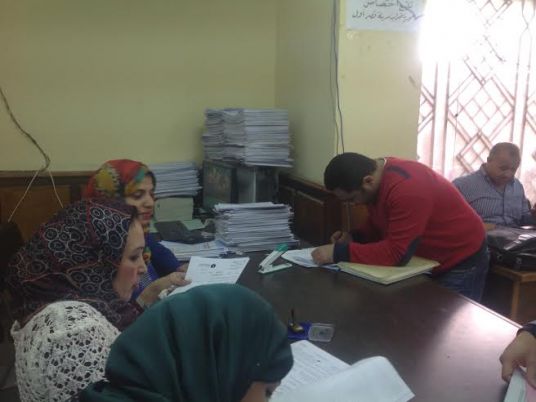The resignation of a leading cabinet member is not enough to contain outrage stirred up by this week’s bloody attack on a Coptic-led protest, say politicians, who argue the entire cabinet must resign.
On Tuesday, Hazem al-Beblawy, who was appointed as finance minister and deputy prime minister for economic affairs less than five months ago, tendered his resignation to Prime Minister Essam Sharaf in protest at the way the cabinet has handled recent clashes in Cairo that left at least 25 killed and 300 injured.
“This is not enough,” Mohamed Hamed, member of the political bureau of the Free Egyptians party told Al-Masry Al-Youm. “Where is Sharaf’s resignation? The whole cabinet should have resigned. Egypt needs a strong prime minister.”
“Any cabinet anywhere on earth would have resigned if something like that had happened,” Hamed added.
Beblawy’s resignation comes on the heels of Sunday clashes that erupted between the military and the police on one side and thousands of protesters – mostly Copts – on the other. Violence erupted as demonstrators marched towards Maspero near downtown Cairo to protest religious discrimination. Suddenly, stones were hurled and gunfire was heard. Eventually, military and police forces intervened, deploying bullets and tear gas to disperse protesters. Military personnel carriers were seen running over demonstrators.
According to Samer Soliman, a leader of the Egyptian Social Democratic Party which Beblawy had co-founded, told Al-Masry Al-Youm that the 75-year-old economist had tendered his resignation after consulting on Monday with the party’s leadership.
“He asked for the party’s opinion on the matter and then realized it would be better for him and the party if he resigned,” said Soliman. “It’s not honorable to be part of a government like that.”
Sharaf reportedly said that it is still to be decided whether the resignation will be accepted. Cabinet sources said that Beblawy is due to meet with SCAF Tuesday night.
Sharaf’s cabinet has been under harsh criticism from different political forces for several months due to its failure to restore security and force the Supreme Council of the Armed Forces to endorse reforms. But this week’s violence was seen as the final nail in the 59-year-old prime minister’s coffin. His detractors were provoked by the speech he gave few hours after the attack blaming the incident on “hidden local and foreign hands” without acknowledging his cabinet’s responsibility. Sharaf’s critics seized the opportunity to renew calls for his dismissal.
“This cabinet lacks political vision and will and should leave because it has already failed in running the country during the transition period,” said Amin Iskandar, member of the political bureau of the Nasserist Karama party. One of the main reasons that exacerbated the outrage of politicians was the coverage of government-owned television networks. While civilians were being run over to death, the government channels reported that Christians were attacking the military and had killed three military personnel. One anchor reportedly called upon viewers to take to the streets to defend the military. Later, observers condemned the coverage and accused Sharaf’s information minister Osama Heikal of instigating civil strife.
“What the Egyptian television did was a real tragedy,” said Iskandar.
Yet, for Soliman, getting rid of Sharaf’s cabinet should not be a goal in itself.
“Removing Sharaf and coming up with a new puppet won’t make any difference,” said Soliman, adding that Egypt needs a strong cabinet or an interim presidential council with real power.
“If SCAF keeps running the country, it will go up in flames,” he warned.




